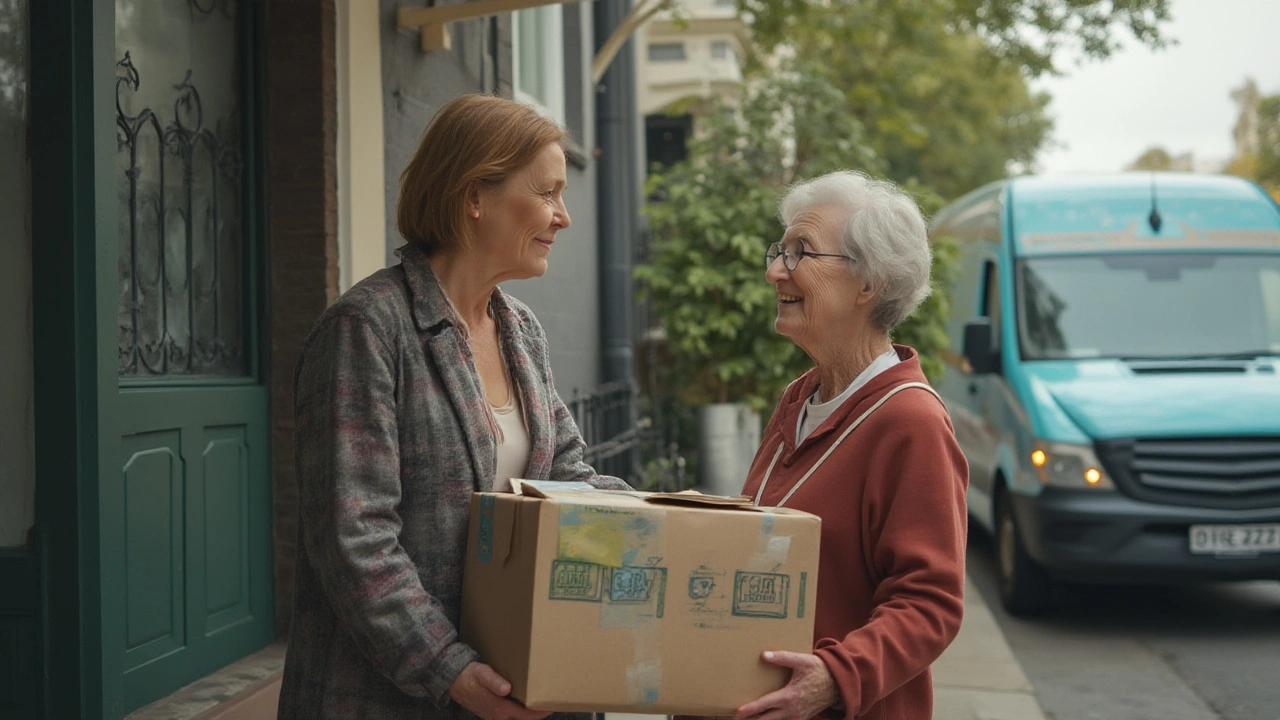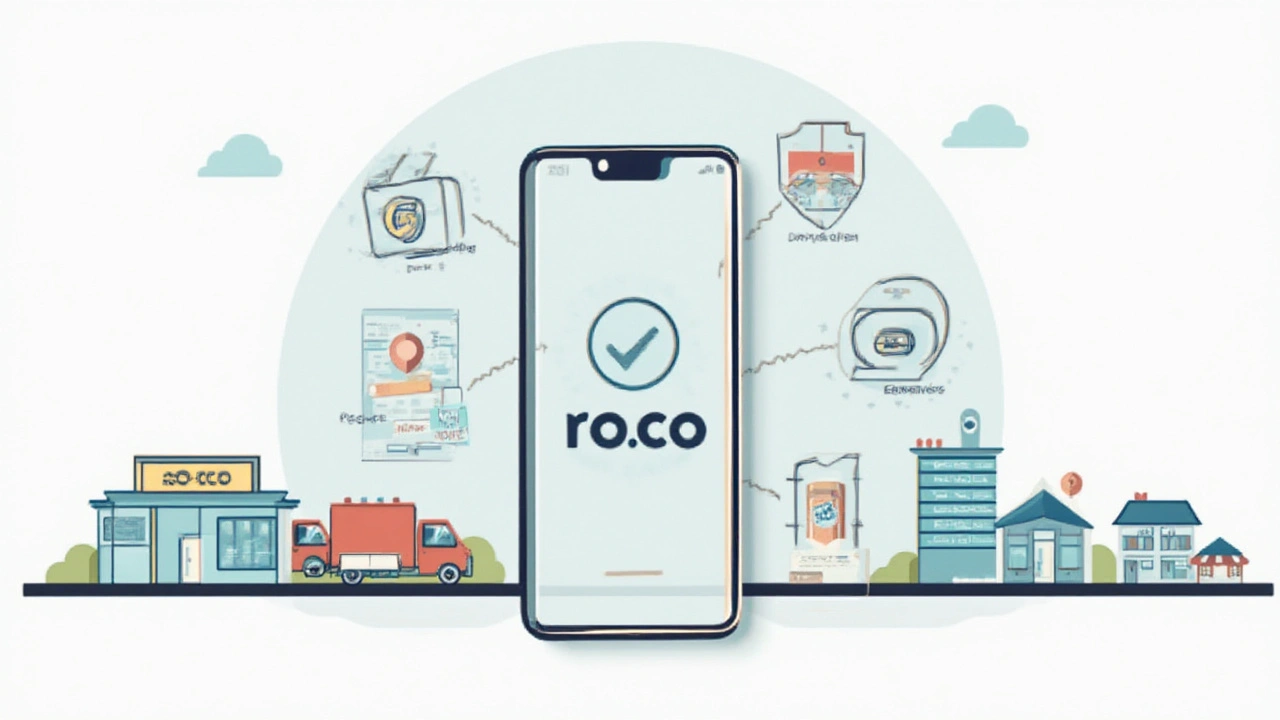
If you haven’t noticed, scrolling up and down your feed, there’s a new wave of online pharmacies in Australia. The rise of sites like ro.co doesn’t just make things easier for someone with an embarrassing condition or a busy lifestyle—it’s started to change how everyday Aussies get their hands on essentials like prescription meds, personal health advice, even supplements. We’re not in the offline, wait-in-the-queue world anymore. The transformation has speed and convenience at its core. But with all this buzz, it’s fair to wonder: is ro.co actually the future of pharma, or a risky shortcut?
What is ro.co and How Does It Work?
ro.co is the Australian branch of Roman Health Ventures, a US-born company that made its name with discreet telehealth for men’s health. The mission is simple: take doctor consults and prescription delivery out of the old-fashioned waiting room and drop them onto your phone or laptop. With ro.co, you pick a treatment—anything from hair loss meds to erectile dysfunction pills or skin treatments—and then fill out a secure medical questionnaire. Forget jammed receptionists or long forms; it takes five to ten minutes.
If the info matches up, a registered Australian doctor looks over your case. Sometimes, you’ll get follow-up questions by text, email, or call, but you never have to step outside your house. Once approved, your prescription gets sent to their partner pharmacy, which delivers the meds straight to your door in discreet packaging. Usually, people are surprised how quiet, fast, and private it feels—sometimes the process is done in less than 48 hours. This model, telehealth plus pharmacy, has caught on big with urban professionals and regional residents alike. While ro.co started with men’s health, their services have quickly grown to include contraception, skincare, cold sore treatments, and even migraine care.
Ever wondered if the doctors on ro.co are real? Here’s the thing: the company only uses AHPRA-registered Australian practitioners. Every prescription follows TGA rules, and each order is filled by licensed local pharmacies. The slick website doesn’t mean you’re skipping the legal safety nets. In fact, for private issues that are tough to discuss in person—or tough to see a GP for because of distance or time—this system is a huge relief. It isn’t a free-for-all, though; if the doctor thinks your case is complicated or risky, you get told to see a local GP instead.
How Safe and Legitimate Are Online Pharmacies Like ro.co?
Let’s cut through the noise: safety is a legitimate concern. Australians hand over private health info and expect strong privacy, regulation, and trusted medicines—not knock-off pills or data leaks. Ro.co operates under some tough regulatory limits. Any prescription, referral, or advice is handed out by a legit Australian doctor. They don’t just throw out scripts to anyone with a credit card.
Ro.co encrypts user medical records and strictly follows the Privacy Act (1988). If you’re worried about your details getting sold or lost, know that their privacy policies are comparable to your typical physical GP. Plus, prescriptions are filled only by partner pharmacies licensed in whatever state you live in. As of 2025, there’s never been a credible report of ro.co dispensing counterfeit medications or dodgy generics. For skeptics, the real risk is ignoring medical red flags: the company actually blocks sales if it spots a warning sign, sending you back to your usual GP—or the hospital—rather than letting you keep clicking through to payment. It’s not a black market loophole.
You might also wonder: does telehealth mean worse care? Evidence from peer-reviewed studies says telehealth is just as effective for many routine things—like erectile dysfunction, birth control, or even skin checks. For complex cases or anything urgent (think chest pain, severe infections), telehealth can’t replace emergency rooms or a hands-on GP. But for recurring scripts and obvious, long-term problems, it’s a real game-changer. Ro.co highlights clearly that it isn’t right for everything, and their approval rates for more serious meds are strict. If you ever get a script refused, the doc usually explains why, and the whole process leaves a paper trail for audit. It keeps everyone honest.

Comparing ro.co to Traditional Brick-and-Mortar Pharmacies
Let’s be honest: most of us have stood in line at a pharmacy, hoping no one recognizes us while we awkwardly whisper to the pharmacist. With ro.co, that walk of shame simply doesn't exist. Convenience is the big win, but there are other differences. Traditional chemists offer immediate, face-to-face advice, often without appointments. Ro.co flips that: you fill out a detailed online form or have a video chat, then wait a short time for processing and delivery. Which wins? It depends. For chronic med refills, quick questions, and private conditions, ro.co usually beats out a trip across town.
But there’s a trade-off. If your medication need is urgent (like antibiotics for a sudden infection), or you need to physically show a pharmacist a rash or injury, traditional bricks-and-mortar is still faster. Prices also differ: ro.co offers fixed transparent pricing, so you know the cost, and often folds the consultation into the medication fee. No hidden extras or weird surcharges at pickup. Pharmacies sometimes edge out on out-of-pocket costs because of direct Medicare rebates or deals, but for full-fee meds, ro.co is competitive—especially considering you save on petrol and time.
One thing to watch: ro.co can handle PBS prescriptions but doesn’t replace the whole Medicare workflow—if you’re chasing subsidized scripts or complicated med-switches, a pharmacy near you may be best. Still, for repeat scripts, especially the stuff people find awkward to talk about, more Aussies are skipping the chemist. As of 2025, online pharmacies cover about 15% of all non-PBS prescriptions in Australia, and analysts expect that to keep growing.
Tips for Getting the Most Out of Online Pharmacies Like ro.co
Using ro.co isn’t just clicking through and hoping for the best. There are simple ways to make sure your experience is smooth, quick, and safe. First, always double check the website address—you want "ro.co" not a dodgy lookalike that’s a phishing scam. Once you’re on the real site, be completely honest in your medical questionnaire. If you fudge the symptoms to get a prescription, there’s a good chance the doctor will pick up on something funky and halt the process. Delays are annoying, but lying about your health history can also be risky.
If you’re ordering for the first time, have your Medicare details handy. While you don’t have to upload every medical record, giving accurate current medication lists and allergies saves time. Also, read through the treatment information sheets: these are written in plain Aussie English, not medical quackery. If you get stuck, there’s a customer chat or helpline during decent hours—actual humans on the other end, not just bots. For reorders, most treatments let you set up auto-refills, which is handy for things like daily hair loss tablets or chronic medical needs. Ro.co sends reminders well ahead of time, so you’re not left short.
Delivery is fast, but not instant—plan ahead if you’ve only got a few days’ supply left. For confidential deliveries, you get the option to choose nondescript packaging. The pharmacy won’t send anything with branding or “embarrassing” labels. Also, track your parcel: Australia Post has occasional delays, and you don’t want to run out in the middle of the week. If you ever need to cancel or update your prescription, it’s best to call the team directly. The interface is sleek, but some things need a real person. Lastly, keep your scripts and health history up to date. If you get a new diagnosis or start a new med from another doctor, update your profile to avoid dangerous interactions.

The Future of Digital Healthcare and What to Watch For
Online pharmacies aren’t a passing trend—they’re a sign of where Australian healthcare is headed. Services like ro.co are part of a bigger movement making health access simple, fast, and often cheaper. By 2025, digital health visits are up thirty percent compared to five years ago. The COVID-19 pandemic gave the whole telehealth revolution a big kick, but the wider adoption stuck around, even after lockdowns eased. Younger Aussies—especially blokes under 35—are way more likely to use virtual doctors for stuff they’d put off or ignore.
Still, like any new system, there are things to keep on the radar. Cybersecurity is huge: with sites handling more personal data, companies have to stay ahead of hackers. Ro.co invests in secure endpoints and does annual data audits, but no system is bulletproof. Checking for TGA approval of any med—and clear Australian doctor registration—is the best protection against online “pharmacies” trying to slip in fake pills. For chronic conditions or complex meds (like opiates or antipsychotics), you won’t get a script just by clicking through. Ro.co and most legit competitors won’t replace hands-on GPs for hospital discharge scripts or cancer treatments.
The future isn’t all robots, though. With AI diagnostics, better chat support, and improved logistics, stuff that used to be impossible online—like real-time monitoring, or instant health plan changes—are arriving fast. Some experts reckon in a year or two you’ll order blood tests, manage prescriptions, and book video checks, all from your smartphone. If you’re one of the 65% of Aussies who delay or avoid doctor visits because of time, cost, or embarrassment, these changes might finally put your health in your own hands.
One last fact for the sceptics: government health reviews have actually found that telehealth and digital pharmacies don’t increase health risks—in fact, for men’s health and contraception issues, people are more likely to stick to their treatments or check in with doctors thanks to the lower friction and stigma. So if you’ve been putting off sorting out your hair loss, blood pressure, or skin drama, giving ro.co a try is a low-risk, high-reward move. Sure, you’re cutting out a few awkward chats, but you’re not skimping on care.

 Health and Wellness
Health and Wellness
Hannah Seo
July 31, 2025 AT 20:53What many people overlook is that the regulatory framework in Australia already covers digital pharmacies. AHPRA‑registered doctors must review every prescription, which means the same legal standards apply as in‑person visits. The encryption of medical records aligns with the Privacy Act, so data protection is comparable to a traditional GP. Because the partner pharmacies are licensed locally, the medicines you receive meet TGA quality requirements. Delivery in discreet packaging also helps reduce the stigma around sensitive health issues. For patients in rural areas, the reduced travel time can be a real quality‑of‑life improvement. If you keep your medical questionnaire accurate, the system works smoothly and safely. Overall, ro.co demonstrates how technology can complement existing healthcare pathways.
Victoria Unikel
July 31, 2025 AT 22:00i kinda wish they'd add a chat for med questions lol
Lindsey Crowe
July 31, 2025 AT 23:06Sure, because nothing says "trustworthy" like ordering pills from a website while binge‑watching Netflix. The whole “no waiting room” gimmick is just a fancy way to tell you the doctor isn’t really looking at you. If you’re happy with a prescription that pops up in the mail, go ahead; just don’t be surprised when you miss a subtle side effect. At the end of the day, convenience beats caution for some, but that’s a risky trade‑off.
Rama Hoetzlein
August 1, 2025 AT 00:13Listen, the whole discourse around ro.co exposes the deeper rot in our healthcare mindset, where efficiency is worshipped above genuine patient‑centred care. You act as if the mere presence of a licensed doctor on a screen solves every ethical quandary, but you ignore the tactile nuance of a physical exam. When you reduce health to a click‑through form, you commodify human suffering into a transaction, and that is nothing short of dehumanizing. The idea that privacy is guaranteed simply because data is “encrypted” is a hollow myth; data breaches are inevitable, and the average consumer is left exposed. Moreover, you glorify speed while discounting the value of deliberation, as if faster always means better. The systemic pressure to cut costs pushes companies like ro.co to prioritize volume over vigilance, and that inevitably leads to oversight. We see this in the subtle ways algorithms flag “high‑risk” cases – they are not infallible, and they often miss the gray areas that seasoned clinicians catch. In an age where AI can diagnose skin lesions, you still cannot replicate the gestalt of a trained physician’s intuition. To claim that telehealth is “just as effective” for most routine conditions is an overgeneralization that erodes public trust. You also ignore the socioeconomic disparity; those with limited internet access are forced back into the archaic system you claim to improve. The notion that discreet packaging solves embarrassment is a superficial fix that sidesteps the stigma attached to many conditions. If you truly cared about health equity, you would invest in community outreach rather than sleek apps. The market hype surrounding ro.co distracts from the legitimate concerns about regulatory loopholes and data sovereignty. It’s convenient, yes, but convenience is a cheap illusion when lives are at stake. So before you hail this platform as the future, ask yourself whether you’re comfortable handing over your health to a corporate algorithm that churns prescriptions like a factory line. Remember, progress without accountability is just a new form of exploitation. 😡
Lorena Garcia
August 1, 2025 AT 01:36I get that the rapid rollout of digital pharmacies can feel unsettling, especially when you consider data security and the loss of personal interaction. Still, many people-particularly those in remote regions-find real relief in the convenience and privacy it offers. The fact that ro.co works with AHPRA‑registered doctors and follows TGA standards does address a lot of the safety worries you raise. It’s also worth noting that telehealth isn’t meant to replace every in‑person visit, but to fill gaps where traditional care falls short. While the system isn’t perfect, ongoing oversight and consumer feedback are helping to improve it over time. In the end, the choice should rest with patients who weigh both the benefits and the risks for their own circumstances.
Dietra Jones
August 1, 2025 AT 03:00Just a quick note-"in‑person" is usually hyphenated, and "AHPRA‑registered" needs the hyphen too. Also, "over time" can be one word “over‑time” when used as adjective. Other than that, your points are spot on.